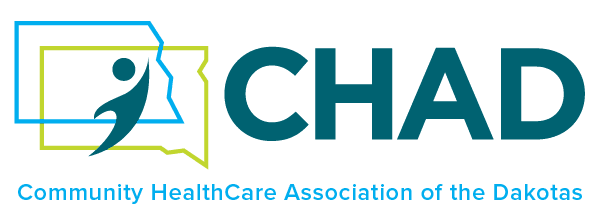Resources
General Resources
The National HIV Curriculum, a free educational websites from the University of Washington, provides ongoing, up-to-date information needed to meet the core competency knowledge for HIV prevention, screening, diagnosis, and ongoing treatment and care to health care providers in the United States.
Free CME credit, MOC points, CNE contact hours, and CE contact hours are offered throughout the site.
The National STD Curriculum is a free educational website from the University of Washington STD Prevention Training Center. This site addresses the epidemiology, pathogenesis, clinical manifestations, diagnosis, management, and prevention of STDs.
Free CME credit and CNE/CE contact hours are offered throughout the site.
MWAETC HIV ECHO builds the confidence and skills of health care providers (HCPs) in the MWAETC region to provide high quality HIV care to patients. Using interactive video, the weekly online sessions provide real-time clinical consultations between community providers and a multidisciplinary panel of HIV experts, including Infectious Disease, Psychiatry, Family Medicine, Pharmacy, Social Work and Case Management.
The North Dakota Department of Health and DAETC collaboratively offer web-based learning once a month, typically the 4th Wednesday of the month. North Dakota nursing CEUs are available for two weeks after the presentation. Previous presentation slides and recordings can be found here.
South Dakota Department of Health
Falls Community Health | City of Sioux Falls – Ryan White Part C Program is an Early Intervention Services program designed to help improve the quality and availability of primary health care with respect to HIV/AIDS disease.
Heartland Health Resource Center – Ryan White Part B Care Program (eastern SD)
Volunteers of America – Ryan White Part B Care Program (western SD)
Click here to watch a video created by the AETC program, aiming to battle the stigma of HIV.
CDC's STI Treatment Guidelines
The CDC has released Sexually Transmitted Infections Treatment Guidelines, 2021. This document provides current evidence-based diagnostic, management, and treatment recommendations, and serves as a source of clinical guidance for managing sexually transmitted infections (STIs).
Main STI Diagnostic, Treatment, and Management Updates for Providers
The new guidelines include notable updates from the previous 2015 guidance, including:
- Updated treatment recommendations for chlamydia, trichomoniasis, and pelvic inflammatory disease.
- Updated treatment recommendations for uncomplicated gonorrhea in neonates, children, and other specific clinical situations (e.g., proctitis, epididymitis, sexual assault), which builds on broader treatment changes published in Morbidity and Mortality Weekly Report.
- Information on FDA-cleared diagnostic tests for Mycoplasma genitalium and rectal and pharyngeal chlamydia and gonorrhea.
- Expanded risk factors for syphilis testing among pregnant patients.
- Recommended two-step serologic testing for diagnosing genital herpes simplex virus.
- Harmonized recommendations for human papillomavirus vaccination with the Advisory Committee on Immunization Practices.
- Recommended universal hepatitis C testing in alignment with CDC’s 2020 hepatitis C testing recommendations.
STIs are common and costly. With 26 million new STIs occurring each year, totaling nearly $16 billion in medical costs, evidence-based prevention, diagnostic, and treatment recommendations are critical to STI control efforts now more than ever.
During the COVID-19 pandemic, CDC provided guidance for the disruption of STI clinical services, focusing on syndromic management and STI screening approaches to maximize the number of people with STIs identified and treated, while prioritizing those most likely to experience complications. However, most drug and testing kit shortages have since resolved and many health care providers are returning to normal clinical practices, which includes conducting STI evaluation and management in accordance with CDC Sexually Transmitted Infections Treatment Guidelines, 2021.
Provider Resources for STIs (have this paragraph hyperlinked if possible)
You can stay informed on the latest STI recommendations and clinical guidance with CDC and partner resources which include:
- High-quality printable copies of the wall chart, pocket guide, and MMWR, which are available for download now on the STD website. A limited number of free copies will be available for order through CDC-INFO On Demand in the coming weeks.
- Training and technical assistance, which are available through the National Network of STD Clinical Prevention Training Centers.
- STD clinical consultation services, which are available through the STD Clinical Consultation Network.
- Free continuing education credits (CME and CNE), which are available through the National STD Curriculum.
- Recommendations for Providing Quality STD Clinical Services (or STD QCS), which complement the STI treatment guidelines, focusing on managing clinical operations.
- An updated STI Treatment Guidelines mobile app, which is in development and is expected to launch in the coming months. NOTE: The 2015 STD Treatment Guidelines app will be retired at the end of July 2021. CDC is finalizing an interim, mobile-friendly solution – please visit STI Treatment Guidelines (cdc.gov) for information, as it becomes available.

